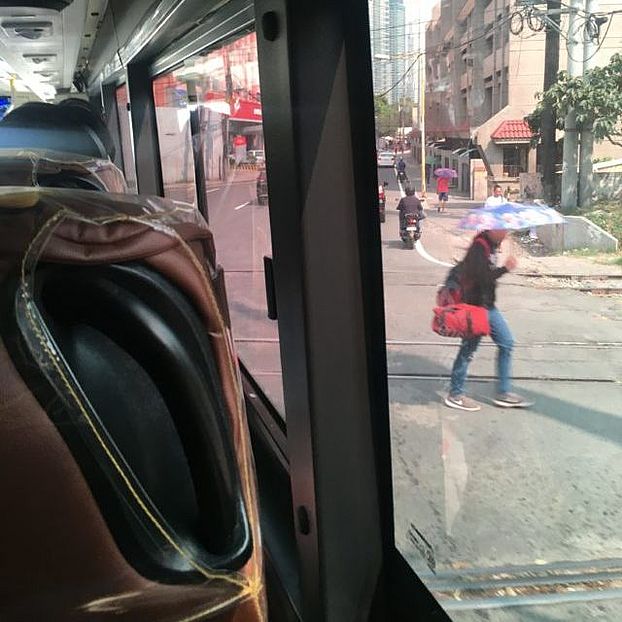recalibrating rhythm: passengers navigating Metro Manila through the Point-to-Point Bus

Carla Michelle Cruz | Master Thesis, 2020
Commuting on public transport in Manila is difficult and tiring, an arduous essential task for ordinary urbanites. As a megacity in Asia, Metro Manila suffers from extreme challenges of everyday traffic. The metropolis ranked second in the TomTom traffic index for 2019 for the worst urban congestion worldwide; according to this ranking, Manila’s standing is calculated to be at seventy-one per cent congestion, which has made commuting worse. It remains an inimitable fact that a large population of people are left commuting via public transportation or by way of privately owned vehicles. To address this crisis the government has built the point-to-point (P2P) bus system as part of the country’s public utility bus modernization program to alleviate some of Metro Manila’s traffic and commuting issues between key areas of the megacity. In this thesis I explore the rhythms and challenges of commuting on public transport, engaging the ways in which the P2P bus has reshaped the commuting experience. Through ethnographic methods, I explore how the P2P bus is experienced by commuters, investigating how it recalibrates their rhythms, the time they spend commuting, their pace and conditions of travel, their emotions and their manners of moving through the city. I evaluate the various realities of commuting life, the hard work that comes with the everyday grind of the commute and the difference that the P2P bus makes in the commuter’s everyday lives by reshaping their rhythms. From Lefebvre’s rhythmanalysis I draw three types of rhythms to frame the discussion in order to make sense of how the P2P bus’ intervention recalibrates the commuter’s experiences and rhythms. The study aims to contribute to the literature on commuting mobilities as constitutive of modern urban life by focusing on the embodied and lived experiences of passengers, particularly in a global South context.
